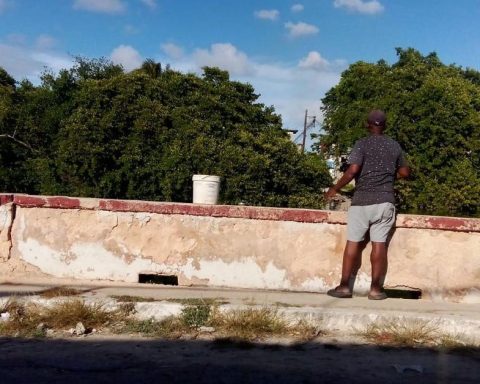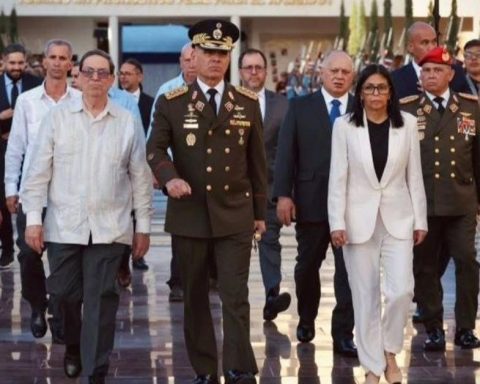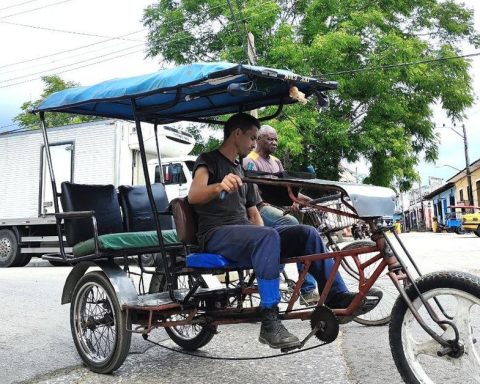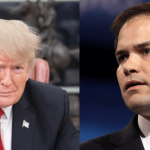Eleven countries of the Community of Latin American and Caribbean States (Celac), including Cuba, agreed on Wednesday to create an alliance to jointly face inflation. In that virtual meeting called by the Mexican president, Andrés Manuel López Obrador, the Cuban president, Miguel Díaz-Canel, made several proposals, which he described as “practical actions of great impact” and include resorting to barter and making available to his partners about a thousand doctors.
In its final statementthe leaders of Mexico, Cuba, Argentina, Belize, Bolivia, Brazil, Chile, Colombia, Honduras, Venezuela and Saint Vincent and the Grenadines agreed, among other points, to “generate a virtuous circle of prosperity, economic growth and sustainable development for Latin America and the Caribbean”.
To do this, they agree to create a “technical working group” made up of government representatives from each country to establish an action plan with “logistical, financial and other measures” that allow “the exchange of basic basket products and intermediate goods” in “better conditions”, with the priority of “reducing costs” for the “poorest and most vulnerable” population.
The text also mentions among the causes of inflation “the application of unilateral coercive measures contrary to International Law that affect some countries”
The countries gathered consider that the rise in prices around the world is due, among other things, to “extra-regional military conflicts”, the slow economic recovery after the covid-19 pandemic and “a large external debt that especially affects the low- and middle-income countries. The text also mentions among the causes of inflation “the application of unilateral coercive measures contrary to International Law that affect some countries”, without specifically alluding to the United States sanctions against the Cuban and Venezuelan regimes.
Thus, they highlight “the need to have a fairer, more democratic, inclusive and supportive international financial system that allows the countries of our region to access the necessary financial resources and improve the conditions of external indebtedness”.
Without forgetting “the current trade agreements that each country maintains” –such as, for example, Mexico’s agreement with Canada and the United States, Caricom or Mercosur–, they commit to “finding alternatives that improve physical and economic access to products”.
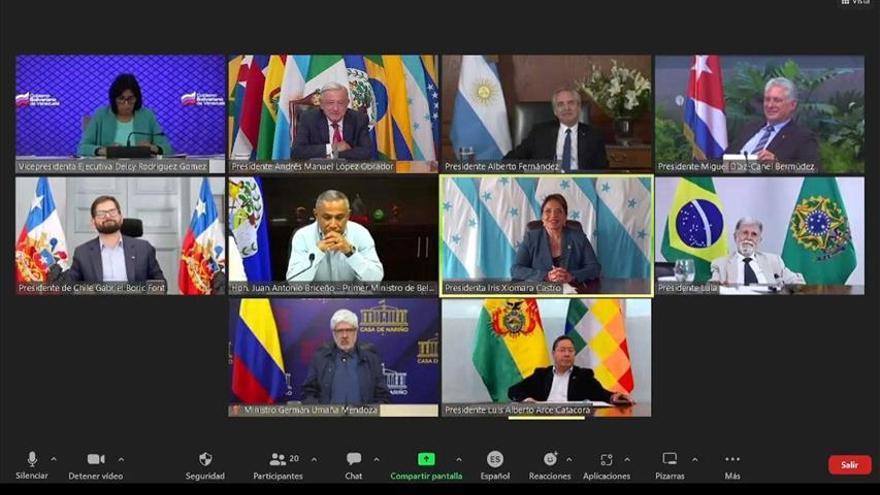
Among their proposals, they refer to “improving the efficiency of the entry and exit of products through ports and borders” and the “exchange of intermediate inputs, machinery and technology for the benefit of agricultural productivity”, as well as “facilitating access to credit for international level”.
The joint declaration includes a good part of the suggestions made by Miguel Díaz-Canel in his intervention. The Cuban president asked to resort to trade barter, that is, to barter. “This is an attractive modality for Cuba due to the severe restrictions imposed on us by the blockade and the arbitrary and unjustified inclusion on the list of States that, according to the United States, sponsor terrorism, which severely limits the country’s financial relations,” he explained. in his speech, picked up by the official press.
Díaz-Canel, at the helm of a country mired in an unprecedented crisisalso exhorts to “take advantage of the potential, the capacity and the political will to undertake, without delay, practical actions of great impact on the well-being of our peoples.”
“We would be in the capacity for 1,000 comprehensive general practitioners to reach the populations that require it
As an example, he says: “In Cuba we have two plants with the capacity to produce fertilizers; however, we do not have the necessary raw materials for it. To produce NPK we need phosphorus, nitrogen and potassium. If some of the countries reach an agreement with Cuba to supply these inputs, we would be in a position to produce the fertilizers and export them, and I believe that this is a scheme that can be used in other areas and in other countries.”
In the same way, it offers the “extensive experience” of the Island, “particularly in the Health sector.” “We would be able to enable 1,000 comprehensive general practitioners to reach the populations that require it and also apply programs to combat chronic diseases such as diabetes and blindness,” reiterated the president, whose missions Health services deployed in dozens of countries represent the country’s main source of income, ahead of remittances and tourism.
Díaz-Canel took the opportunity to thank the Mexican president, whom he refers to as “brother Andrés Manuel,” for organizing the “summit.”
López Obrador, precisely, starred in one of the most controversial moments, declaring, between laughs and without an iota of irony: “Cuba is for going to live there.”
The leaders met for an upcoming physical appointment on May 6 and 7 in Cancun, Mexico.
________________________
Collaborate with our work:
The team of 14ymedio He is committed to doing serious journalism that reflects the reality of deep Cuba. Thank you for accompanying us on this long road. We invite you to continue supporting us, but this time becoming a member of our newspaper. Together we can continue transforming journalism in Cuba.
